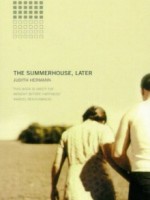 Kitchen
Kitchen
Japan
1993
150

When Kitchen was published in 1987, it was regarded as a radical new addition to the canon of Japanese writing. The fact that it was written by a woman, and a young woman at that, made the book even more of a talking point. In terms of writing from the Orient, it wasn’t like anything that preceded it, or succeeded it, given the gamut of books on foot-binding, Geishas and political struggle hitting bookshops in recent years. Banana Yoshimoto’s themes are mortality, relationships, food and, less expectedly, cross-dressing.
The book is divided into two separate stories but many of the same themes surface in each. In Kitchen, we meet Mikage Sakurai, a sensitive teenage orphan whose grandmother has just died. At the start of the book she says: “I was always aware that my family consisted of only one other person” and she constantly ponders the question of existence. She finds comfort in solitude – and in kitchens. The coolness, the hum of a fridge, its sinister vista in the middle of the night draws her there when she can’t sleep.
Grief is brilliantly handled in the book – everything is ancillary to it. All Mikage wants is to bind herself up in it, craving the basics of sleep, food and quietness. She meets Yuichi and his mother who decide to make her part of their family. Drawn to their warmth and unconventionality, Mikage discovers that Yuichi’s mother is really his transsexual father. They become a weird sort of nuclear family until a tragic event unites Mikage and Yuichi in grief and pits them against the world. They dream of each other on the same night, they have a slight psychic connection and Yoshimoto throws in a very unconventional love story sub-plot.
Yoshimoto heightens the sense of paranormal in the second story, ‘Moonlight Shadow’. A nameless woman loses her boyfriend Hitoshi in an accident and tells us: “The night he died my soul went away to some other place and I couldn’t bring it back”. She becomes friendly with his brother Hiragi, whose girlfriend died in the same crash. On one insomniac night out walking she meets a strange woman called Urara who has also lost someone. Urara introduces her to the mystical experience of The Weaver Festival Phenomenon, which she hopes will cauterise their collective grief.
The two stories mirror each other in terms of love and loss and even the theme of cross-dressing reappears – Hiragi wears his dead girlfriend’s school uniform as a mixture of mourning and shock value. Written in the 1980s, themes like the construction of the family unit, cross-dressing and a heightened exploration of deeply affecting emotions were not overt in Japanese writing of the time.
Yoshimoto’s style of writing is very compact. Descriptions and sentences are pared down and it is somewhere between the unembellished prose of a child and a slightly clinical omniscient narrator. Death stalks through the book and becomes something of a character largely through her stream of consciousness passages. Yoshimoto constantly reaffirms, in the subtlest ways, that we are all alone and that death is inevitable. Lines like: “Someday, without fail, everyone will disappear, scattered into the blackness of time. I’ve always lived with that knowledge in my being” can’t but make you think, but it’s not all morbidity and this is very much a book for the senses. Yoshimoto fills the pages with nature, greenery and plants. Kitchen – as its name would suggest – is soaked in texture and smells. Food and cookery are central to the book, so much so that when Mikage confronts Yuichi about her feelings, she expresses it through the Katduson pork dish she brings him.
This small book has a big philosophical message. Riddled with existential angst, it has a lot of warmth that will make you think. A heartening tale of trying to ride the crests and troughs of life and, in doing so, realising what the important stuff is. ![]()




